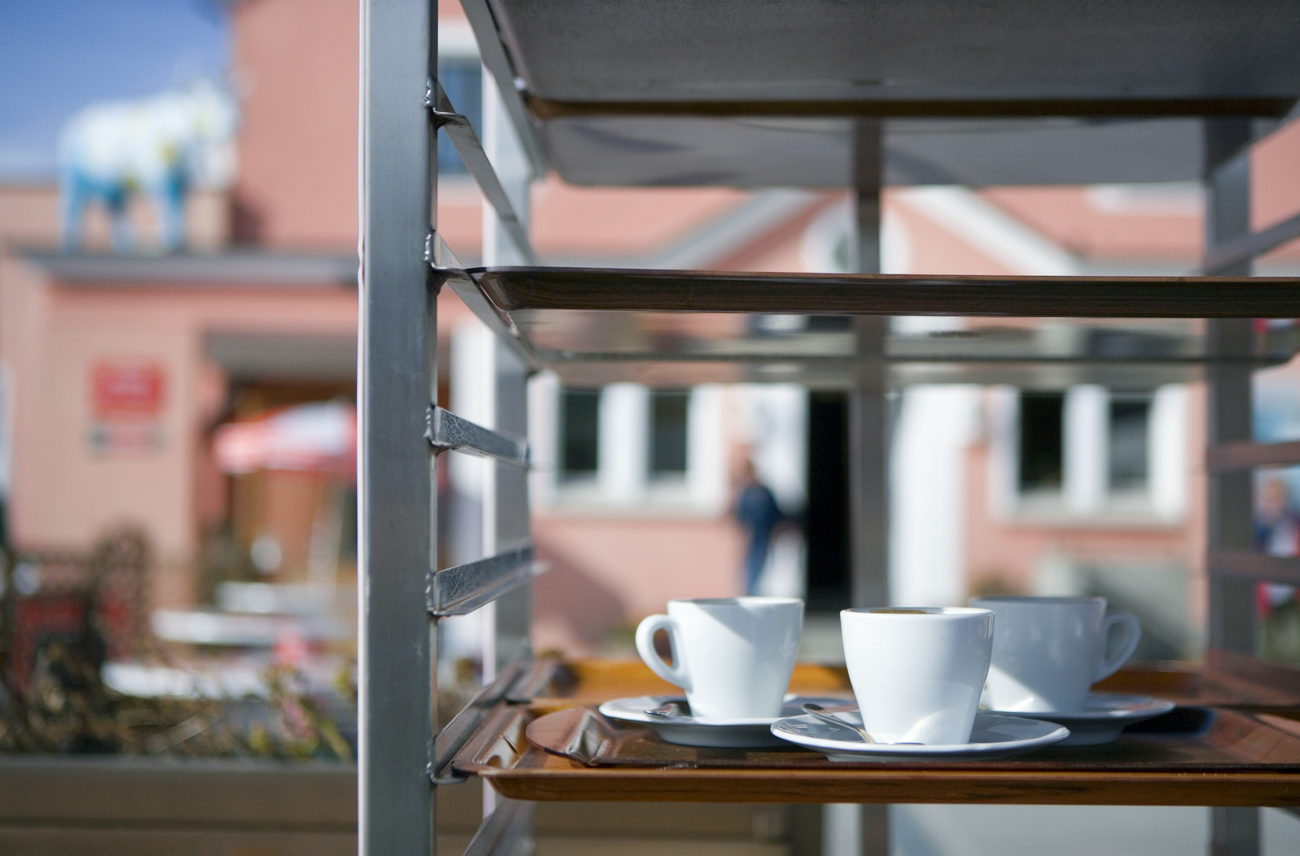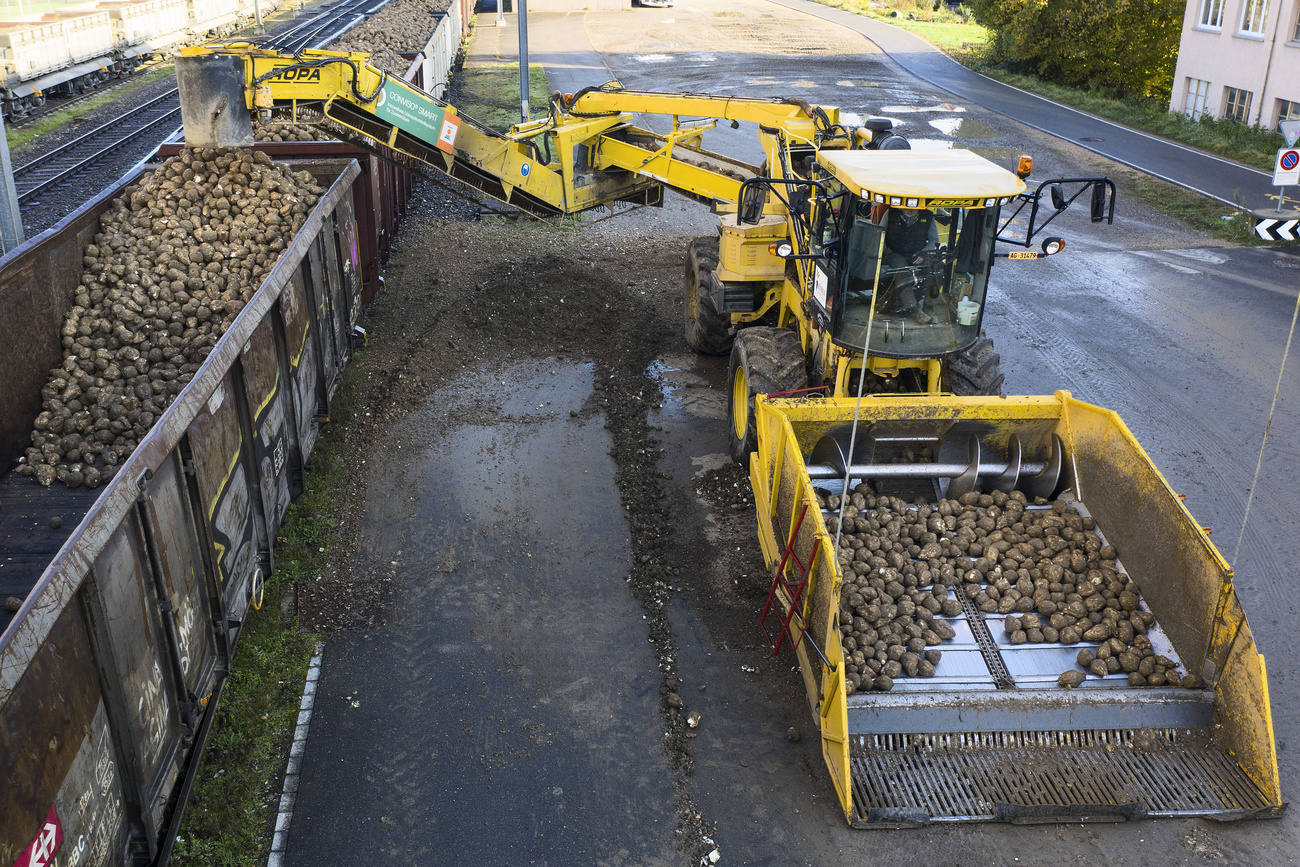

Switzerland Today
Dear Swiss Abroad,
“An informed population needs professional journalism,” says Mark Eisenegger, director of the Research Centre for the Public Sphere and Society at the University of Zurich.
In the Yearbook Quality of Media 2025 published today, Swissinfo is in second place of all online media analysed.
We are delighted that you trust our journalism and stay informed about Switzerland with our briefing. Today it’s all about takeovers: the prevented takeover of a ski resort in Graubünden and the largest takeover of Novartis in ten years.

A resounding yes from the population: to prevent their ski resort from falling into the hands of foreign investors, Flims, Laax and Falera have bought it back for almost CHF100 million ($125 million).
The first heavy snow is falling in the Alps. An important decision for all future ski seasons was made in Flims yesterday: after Falera and Laax, Flims has also agreed to take over the joint ski area.
For CHF94.5 million, the Graubünden municipalities are buying all the cable cars, ski lifts and mountain restaurants from the previous owner, Weisse Arena. Weisse Arena will lease the infrastructure and pay a rent.
The purchase was very well received by the population in all municipalities. “With the purchase, the municipalities want to prevent a future takeover by an investor,” writes Blick. Investors from abroad are particularly feared, such as Vail Resorts from the US, which already owns the Andermatt-Sedrun and Crans-Montana ski resorts in Switzerland.
Part of the deal was big discounts for locals. They will pay CHF250 for an annual pass – a day pass will cost up to CHF120 for non-residents.

An agreement for Ticino is creating problems in the Engadin: Italian cross-border commuters are staying away due to a new tax agreement.
We’re staying in the mountains. In the Engadin, catering businesses fear that they will not be able to fill vacancies in the coming winter season due to a lack of cross-border commuters. The reason is the new tax agreement with Italy, the Tages-Anzeiger writes. Italian guest workers now have to pay tax on their income in Switzerland and Italy.
The manager of a hotel in Pontresina says that she has not yet received any applications from cross-border workers for the winter season. Normally, they make up a third of the workforce. Local skilled workers are also hard to find.
The tax agreement between Italy and Switzerland was originally negotiated to ease the burden on local workers in Ticino. It now means that Graubünden has to worry about these workers. However, a trustee from the Engadin points out in the article that even under the current conditions, Italian guest workers still end up with more money than if they were working in Italy.

Sugar is considered a health risk. However, large quantities of subsidised sugar beet are currently being harvested in Switzerland and transported to sugar factories. For whom is this worthwhile?
Recently, my train was overtaken by a goods train as it entered Zurich’s main station, with mountains of sugar beet visible in its open carriages. A strange sight in the urban environment, but sugar beet is part of Switzerland and its cultivation is subsidised by the federal government to the tune of millions of francs.
A “sweet paradox”, as the Neue Zürcher Zeitung (NZZ) writes. At the same time, the federal government is calling for people to consume less sugar. What’s more, sugar beet is neither particularly high-yielding nor undemanding. “Sugar is being used to promote a product for which Switzerland is not competitive,” says agricultural economist Priska Baur.
According to the NZZ, around half of the sugar consumed in Switzerland comes from local production. After harvesting, the beet is transported to the sugar factories in Aarberg and Frauenfeld. Numerous farmers, contractors and transport companies are involved in the harvesting and processing.
In addition to tradition, the adherence to sugar beet also has something to do with self-sufficiency: sugar beet is Switzerland’s most calorific crop – the more it is grown, the higher the country’s level of self-sufficiency.

In its largest acquisition in ten years, Novartis wants to take over the US biotech company Avidity Biosciences for around $12 billion (CHF9.5 billion). Avidity will fill two gaps for the Basel pharmaceutical giant.
Novartis wants to acquire the Californian biotech company Avidity. The purchase price amounts to around $12 billion, according to Novartis. It would be the largest takeover in ten years.
Avidity Biosciences is based in San Diego and develops novel RNA therapies for the treatment of severe genetic neuromuscular diseases.
The takeover fits in perfectly with the Novartis strategy of recent years, writes the Neue Zürcher Zeitung (NZZ). Novartis is to be transformed from a broad-based healthcare conglomerate into a specialised pharmaceutical group that focuses on innovative treatments.
Avidity’s drugs are not yet on the market, but that is part of the plan. “Novartis will lose sales over the next few years, particularly as the patent on the heart drug Ernesto expires,” the article states. To compensate for these losses, Novartis is specifically looking for product candidates that will soon be on the market.
The business with the new RNA therapies should compensate for these losses.
Edited by Balz Rigendinger. Adapted from German by DeepL/ts

In compliance with the JTI standards
More: SWI swissinfo.ch certified by the Journalism Trust Initiative






























